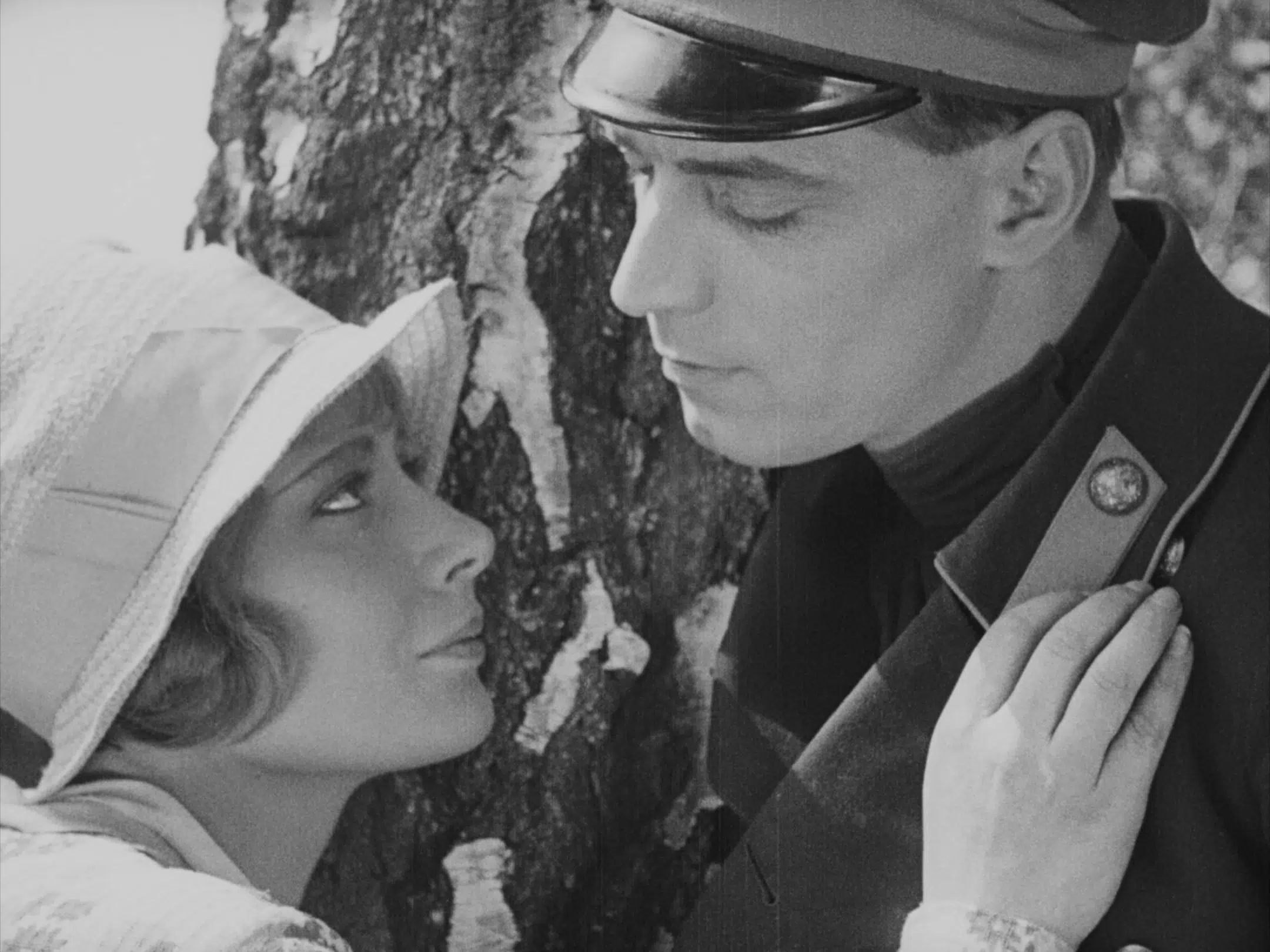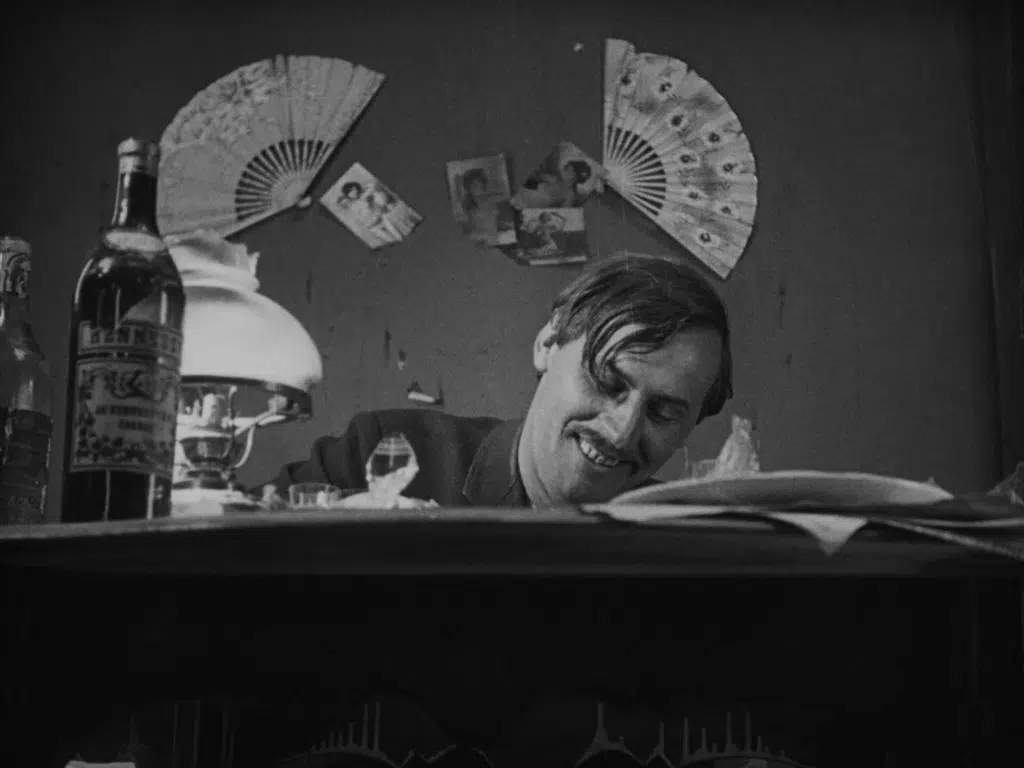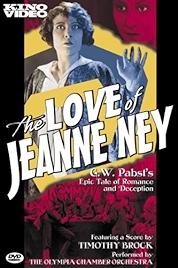The Love of Jeanne Ney is one of those torrid love stories told against a backdrop of roiling conflict. Or that’s what it looks like at the outset. But by the end it’s become more like a showcase for everything the great Austrian director Georg Wilhelm Pabst could do – all the genres in all the styles.
By this point in his career, Pabst had given Greta Garbo her first starring role two years before in 1925’s Joyless Street (aka Die freudlose Gasse). Two years later he would turn Louise Brooks into a global icon with Pandora’s Box.
If Jeanne Ney was a bit of bait designed to lure Hollywood into hiring him, it did eventually work, though Pabst ultimately didn’t enjoy the experience of working inside the studio system and returned to Europe after a couple of years, arriving back in Paris just in time to be picked up by the Nazis. He spent the Second World War reluctantly making films for Josef Goebbels. Remarkably, something similar had happened to him during the First World War, Pabst having returned to France from working at the German Theatre in New York, only to wind up as a prisoner of war.
Being on the wrong side in the wrong place is also a strong driver of the plot of The Love of Jeanne Ney, which starts out in the Crimea, where the Russians are at war with themselves, Red v White, in the aftermath of the 1917 revolution. Jeanne (Édith Jéhanne) is a young woman on the White side in love with Andreas (Uno Henning), a Bolshevik. But the first person we meet is Khalibiev (Fritz Rasp), a boo-hiss villain introduced in the film’s opening shot, of his shoe up against a wall.
In short order the Reds have overwhelmed the town, Andreas has been implicated in the killing of Jeanne’s White-sympathiser father, and Jeanne has fled for Paris, where she throws herself on the mercy of her uncle Raymond, the owner of a detective agency who’s long on avarice and short on sympathy. He only takes Jeanne in because his sweet blind daughter, Gabrielle (Brigitte Helm, of Metropolis fame) begs him to.
Following on behind, in the first of a lot of too-coincidental plot developments, is Khalibiev, who decides, from the second he sees Gabrielle, to woo her, wed her and then kill her, the better to get his hands on dad’s money. And behind him is Andreas, arriving in France, where he’s now a wanted man. And piling up in a plot traffic jam, there’s another strand about a millionaire’s lost diamond, which will tie Raymond, Jeanne, Andreas, Khalibiev and Gabrielle together neatly. Too neatly really.
It is best to see the film as a showreel rather than as a narrative with its own inner integrity. But it is quite the showreel. Pabst runs through as many genres as he can – war, love, comedy, melodrama, feelgood, crime – with the love story between Jeanne and Andreas coming off the worst, which is ironic considering the film’s title. Andreas is not really fully a part of events and for whole chunks of the film is either absent or present and not doing much. Instead starring honours really go to Rasp as the obsequious, lecherous amoral Khalibiev, a wrong’un from his shoes to the top of his head. That moustache! Those teeth! That leer! It’s a stage villain turn and Rasp knows it.
Pabst also works through the styles – Hollywood, German expressionism, New Objectivity, Soviet montage à la Eisenstein – and shows a remarkable control of his cameras. In various bar scenes he’s remarkably nimble, doing things that other directors couldn’t do until digital came along. Outdoors, in sequences that give the film a documentary aspect, he moves at the sort of speeds you might expect from a Buster Keaton movie. Hitchcock was a big fan, and watching this you can tell.
There are plenty of boosters of this film, and it is worth boosting, but it is better as a display of Pabst’s technical mastery than his storytelling prowess. I watched an old Kino Lorber DVD from 2001, and it was, you know, fine, though the slightly drama-free score by Timothy Brock didn’t do it any favours. There’s a new restoration coming from Eureka, in their always excellent Masters of Cinema series. And if the stills are anything to go by, I’m going to have to watch The Love of Jeanne Ney all over again.
The Love of Jeanne Ney (Masters of Cinema restoration) – Watch it/buy it at Amazon
I am an Amazon affiliate
© Steve Morrissey 2021


